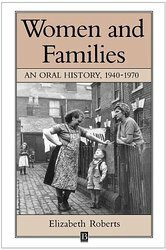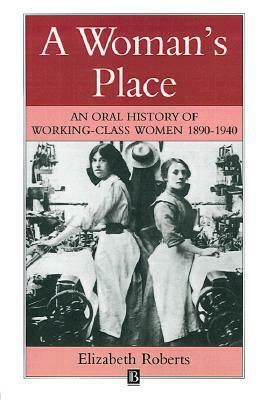WALKING IN OTHER PEOPLE'S FOOTSTEPS
Deadline: 05/09/2016City: Lancaster, Barrow and Preston | Region: Lancashire | Country: United Kingdom | George Harris
Creating an outstanding artistic and heritage programme celebrating the remarkable Elizabeth Roberts Archive . The programme aims to deliver a series of original artistic, performance, participative and heritage events to illustrate and highlight this notable archive in 2017/18.
Mirador, a registered charity which reveals heritage through art, is to develop a wide ranging programme to reveal the extraordinary content of one of the most important collections of oral history testimonies in the UK. Collected in the 1970s when oral history was a relatively new form of data collection, the Elizabeth Roberts Archive is a unique and important source for the history of working-class life in north-west England.
It will be of interest not only to the local communities of Barrow, Lancaster and Preston but also on a regional and national stage given the archive will, after being digitised in 2017, be readily available online as a unique oral history resource.
The Archive is a unique resource, through which we can hear the voices of people born at the end of the nineteenth century sharing their perspectives on the timeless themes of birth, love, marriage, health, work, family and death. The original recordings are now stored at Lancashire Archives as part of their sound collection, offering artists a rare opportunity to reflect on and interpret working-class people, especially women, talking about their lives from over 100 years ago.
The creative programme for Walking in other People’s Footsteps will be a series of site specific/site responsive works that will take place in the locations where the Elizabeth Roberts Archive was compiled, in Preston, Lancaster and Barrow.
We hope to commission and collaborate with artists from a wide variety of artforms who will be passionate and excited about engaging in an investigation of the content of the archive and locations as part of the process in making their work. The investigation of this unique archive offers a rich source material – including particularly valuable insights into what working class people felt and how they behaved, community, history etc – for artists. We are also excited about how the artists we will work with on the Walking in other People’s Footsteps programme will respond to these “raw materials” in their own individual ways.
Our own research and knowledge of the locations and archive has identified some key themes as ideal for artists to deliver site specific/responsive work. Equally, at this stage, we would be keen to take on board any suggestions – especially an imaginative solution which covers the full historical period of the archive – which offer a compelling rationale to develop and deliver work in other places connected to the archive itself.
Without seeking to be unduly prescriptive about the work itself our ambitions for the whole programme are that it should be – original, highly accessible, encourage participation where possible and FUN.
We are hopeful artists and companies will offer an interesting mix of approaches to the archive’s material and will consider creating something unique around the following themes:
Location - site specific and community creative work around the archive’s many rich themes, including family, women, relationships, class, home life, attitudes, behaviour, social life and education.
Topics - one of the truly fascinating aspects of the archive is the remarkable detail and depth it contains on everyday aspects of life as well as the ‘big’ themes. To celebrate the digitisation of the archive, artists will be able to play creatively with the comparisons with the way working people lived then and now. For example, the archive is studded with information about food and drink, hygiene, housework, games and all manner of everyday experiences. Some other topics include allotments, cures, clothing, illnesses, music, neighbours, schools, sex, washing and weddings.
For a taste of the unique Elizabeth Roberts Archive take a closer look at: http://www.lancaster.ac.uk/users/rhc/resources/archive.htm
At this stage we are simply seeking 'expressions of interest' with short outlines of ideas/proposals.
The timetable we are working to is as follows:
Research and development phase with funding bids submitted: 2016/17
2017: continuous development of programme with partners and outcome of funding bids known.
Delivery of programme: 2017/18
www.miradorarts.co.uk
Contact the curator
You must have an account to send a message to the curator of this opportunity. Registering only takes a few moments. Once registered you'll be able to keep track of all of your submissions and get updates on upcoming opportunities.
Already have an account? You must log in to send this curator a message.
Get the latest CuratorSpace news, updates about new opportunities, upcoming deadlines, and art-related promotions.
We are asking for a wide range of artworks that explore horror and the monstrous, for an ONLINE... Group Exhibition in London
Group Exhibition in London. Welcome to our heartfelt exhibition, where the warmth of home meets... april flowers : open call for short films/videos
'Keep It Under Your Hat' - a monthly night of music and poetry in East London is seeking short...




